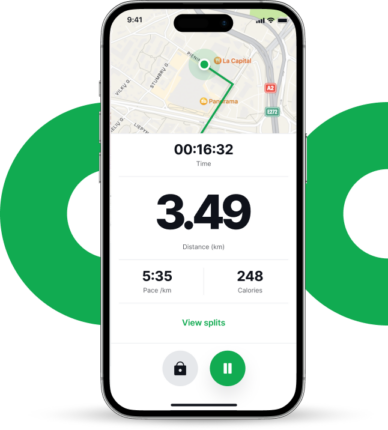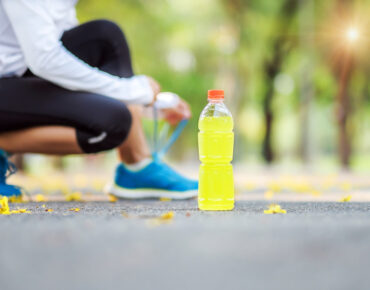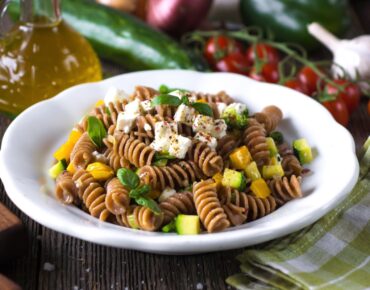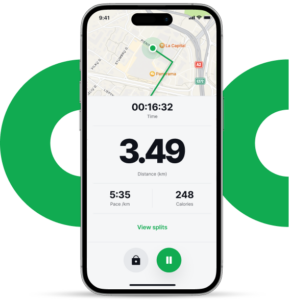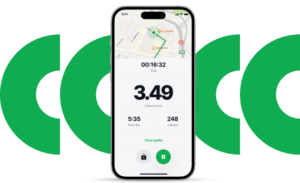In a world where more than 1.9 billion adults are overweight, the concepts of negative calories and zero-calorie snacks are appealing. The idea behind negative-calorie foods is that these take more calories to eat and digest than they provide. Hence, they have “zero calories.”
However, the body uses fewer calories to digest food than the calories food provides. Negative-calorie foods are a myth, and so are zero-calorie snacks.
So, if there are no zero-calorie foods, what are your options? Zero-calorie foods and snacks may be only marketing hype, but low-calorie snacks do exist. And they are some of the healthiest foods you can eat.
Discover 30 alternatives to high-calorie foods in the form of low-calorie dense foods and healthy snacks. They’re delicious and aid weight loss too. Read on to find out more.
In This Article:
What Are Zero-Calorie Snacks?
Zero-calorie foods supposedly make your body burn more calories than they have. However, science doesn’t really back this concept up.
That’s because no food has truly zero calories, only water does. But even though drinking cold water may increase metabolism, the effect is not strong enough to support weight loss.
Even if you consider water a zero-calorie food, it alone doesn’t provide the nutrients your body needs to run. That’s where low-calorie foods come in. Low-calorie dense foods range from low-calorie vegetables and fruits to unsweetened applesauce.
When you eat these foods, you take in a small amount of calories. You also get vitamins, minerals, antioxidants, and other key nutrients your body needs to stay healthy.
For example, a single Oreo cookie (11.3 grams) has 53 calories, including 8.3 grams of carbs and 2.3 grams of fat. At the same time, it has no vitamins or antioxidants. Eat 3 Oreos, and you’re already taking in over 150 calories.
By contrast, the snacks on our list provide notably fewer calories per serving. Low-calorie snacks can help you lose weight while allowing you to follow a balanced diet for runners, so you don’t actually need zero-calorie snacks.
As a runner, getting enough protein, carbs, healthy fats, fiber, and antioxidants through a healthy diet is crucial. It will help you stay healthy and perform at your best.
30 Zero-Calorie Snacks for Runners
None of the snacks on this list are calorie-free, but they are all low in calories. You don’t actually need to eat zero-calorie foods to lose weight!
We’ve grouped them into 5 categories to make it easier for you to incorporate them into your weight loss diet: berries, fruits, leafy greens, vegetables, and other snacks.
All of these snacks have less than 57 calories per 100 grams. The only exceptions are rice cakes, air-popped popcorn, and seaweed snacks, which we recommend in smaller portions.
Tip: Keep in mind that these are mostly foods you can eat in between runs. For in-run nutrition, check our post on what to eat during runs. You may also want to read our post on what to eat before and after a run.
Berries
1. Strawberries
- 36 calories per 100 grams
- Recommended serving size: 1 cup whole strawberries (144 grams)

Delicious, versatile, and loaded with vitamin C, strawberries can be a great regular snack. Research shows that eating strawberries regularly can protect against cardiovascular disease. This is likely due to the powerful antioxidants strawberries have.
Antioxidants in strawberries protect your cells from free radicals that occur through aging and because of environmental factors.
2. Raspberries
- 52 calories per 100 grams
- Recommended serving size: 1 cup (123 grams)
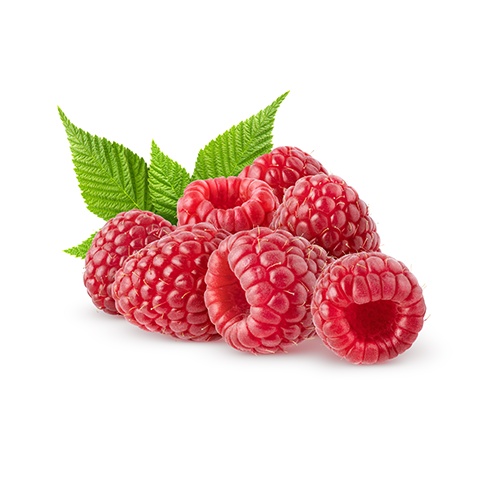
This fruit may not always be in season, but when you find raspberries, grab some. Raspberries provide 6.5 grams of fiber and 52 calories per 100 grams. Each serving provides antioxidants and a healthy dose of vitamin C.
Eat them fresh or add them to oatmeal, yogurt, or smoothies. You can also combine them with other berries to make a delicious fruit salad.
3. Blueberries
- 57 calories per 100 grams
- Recommended serving size: 1 cup (148 grams)
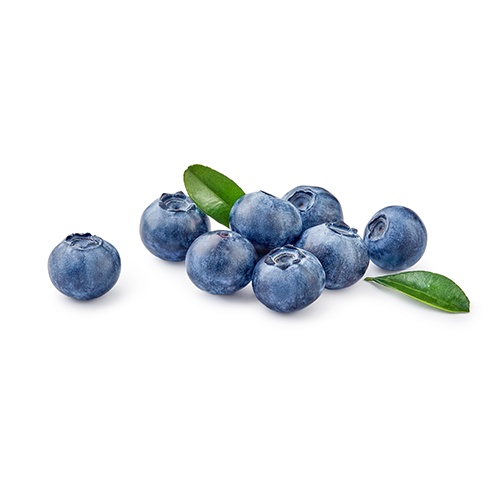
Blueberries are one of the healthiest fruits you can eat, not least because of their anthocyanins. These are powerful antioxidants with a host of potential health benefits, including reducing inflammation, protecting against type 2 diabetes, and lowering blood pressure. Wow!
Bear in mind that you have to eat blueberries regularly to experience their health benefits. You can add them to porridge, salads, yogurt, or smoothies.
4. Blackberries
- 43 calories per 100 grams
- Recommended serving size: 1 cup (144 grams)
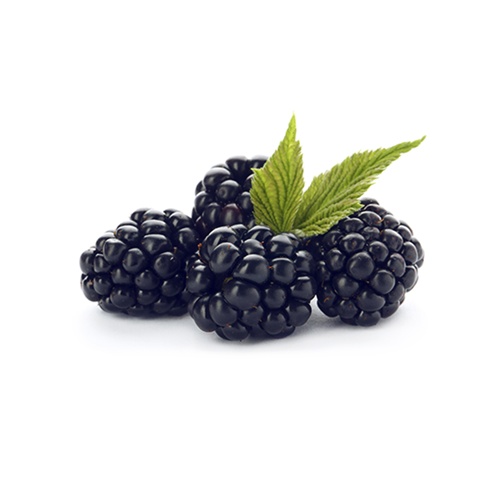
Blackberries are not just low in calories. They are a rich source of vitamin C, have fiber that can help reduce cholesterol, and may protect against gum disease.
What’s more, blackberries pack a hefty dose of vitamin K. This vitamin plays an essential role in bone metabolism.
5. Cranberries
- 46 calories per 100 grams
- Recommended serving size: 1 cup whole (100 grams)

Raw cranberries are a great snack to buy when you can find them. In addition to fiber, cranberries have vitamins C, E, and K1 and powerful antioxidants and phytonutrients like quercetin and A-type proanthocyanidins.
Apart from boosting heart health, these may protect against urinary tract infections.
Keep in mind that dried cranberries are often sweetened with sugar. That significantly increases their caloric content, so try to eat them fresh, or look for unsweetened alternatives.
Fruit
6. Apples
- 57 calories per 100 grams
- Recommended serving size: 1 medium-sized apple (169 grams)

Whether red, green, or golden, apples provide flavonoids (a type of antioxidant), fiber, vitamin C, and potassium. Pick your favorite variety and crunch it with delight.
Always wash apples before eating but don’t peel them. Apple peel contains antioxidants and is good for your body. Ideally, buy organic apples.
7. Watermelon
- 30 calories per 100 grams
- Recommended serving size: 1 wedge (286 grams)

With only 30 calories per 100 grams, watermelon can help you stick to a low calorie intake. It has a high water content, making it a hydrating fruit you can eat before or after workouts.
Watermelon is also a source of vitamin C, potassium, and dietary fiber. There are around 2.4 grams of dietary fiber in each 100-gram serving of watermelon.
8. Grapefruit
- 42 calories per 100 grams
- Recommended serving size: 1 medium-sized fruit or half of a large-sized fruit (150 grams)

There’s more to grapefruit than its high vitamin C content. Grapefruit also has vitamin A, which is good for your eyes, and fiber that supports weight loss by promoting fullness. To boot, it may improve cholesterol levels.
What’s more, grapefruit is a rich source of potent antioxidants that can protect your body against common chronic diseases.
9. Apricots
- 48 calories per 100 grams
- Recommended serving size: 1 cup deseeded and halved (155 grams)
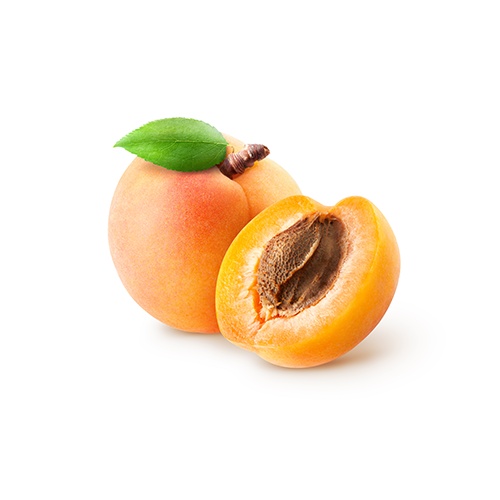
Apricots have polyphenols and other antioxidants that may reduce blood sugar levels and protect you against diabetes.
This, together with their low caloric content and fiber, makes them one of the tastiest low-calorie filling foods around. Apricots can aid weight loss if you eat them regularly as part of a balanced diet.
10. Cantaloupe
- 34 calories per 100 grams
- Recommended serving size: 1 large wedge (102 grams)
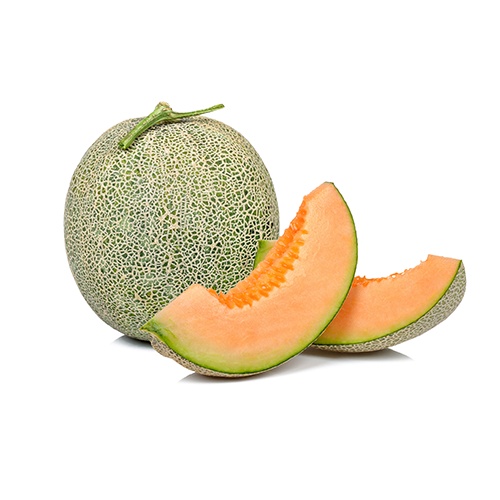
Next up, another variety of melons that can promote healthy weight loss – cantaloupe. The health benefits of cantaloupe are many and varied.
They include vision support through their lutein and zeaxanthin content and an immune system boost, thanks to their vitamin C.
Leafy greens
11. Watercress
- 11 calories per 100 grams
- Recommended serving size: 10 springs (25 grams)
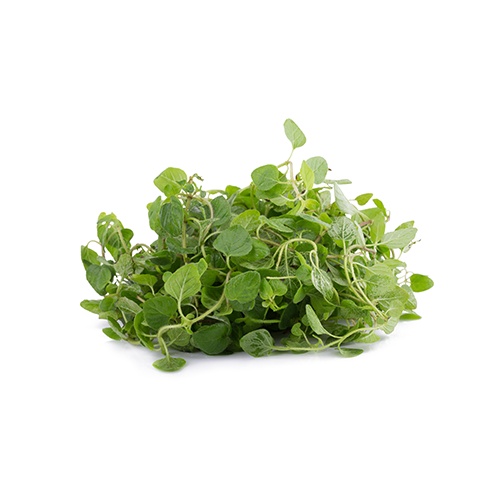
Like other leafy greens, watercress has very few calories. But it provides a significant amount of vitamin K, vitamin A, and vitamin C, all of which are essential for your body to stay healthy. Enjoy it in sandwiches, salads, or blend it into smoothies.
12. Kale
- 35 calories per 100 grams
- Recommended serving size: 1 cup (21 grams)

Kale has more calories than other leafy greens, but it can still help you lose weight. Highly nutritious, kale provides vitamins A, C, and K, as well as calcium.
It has anti-cancer compounds and the macular pigments lutein and zeaxanthin, which your eyes need to function at their best.
13. Lettuce
- 15 calories per 100 grams
- Recommended serving size: 1 shredded cup (36 grams)

Lettuce has vitamin A and folate (vitamin B9). The latter supports healthy cells. Lettuce is also a source of fiber. Eating a lettuce salad or adding it to a sandwich increases your overall daily fiber intake.
Taking in at least 25 grams of fiber a day could help manage blood sugar levels and boost gut health.
14. Spinach
- 23 calories per 100 grams
- Recommended serving size: 1 cup cooked spinach

Our list wouldn’t be complete without spinach. Popeye’s favorite food has vitamins K, A, and B9 and carotenoids that support eye health.
Spinach has only 23 calories per 100 grams. Enjoy raw baby spinach in salads or steam it for a delicious, nutrient-packed side dish.
15. Arugula (rocket salad)
- 25 calories per 100 grams
- Recommended serving size: 1 cup (20 grams)
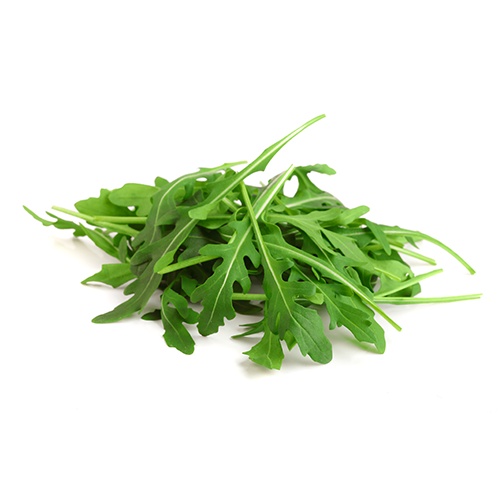
Tender and tangy, arugula or rocket salad more than deserves a place in your salad bowl. It’s a source of fiber, protein, and antioxidants while having no cholesterol. It also has vitamin K and some calcium and potassium. Enjoy it fresh to get most of its nutrients.
Vegetables
16. Cucumber
- 15 calories per 100 grams
- Recommended serving size: half of a medium-sized cucumber

With only 15 calories per 100 grams, cucumber (unpeeled) is a weight-loss snack you can count on.
Cucumber has a very high water content, making it also a hydrating snack on hot days. It’s also noted for its fiber and phytonutrients, plant-based compounds that support overall health.
17. Celery
- 14 calories per 100 grams
- Recommended serving size: 2 stalks of celery (80 grams)
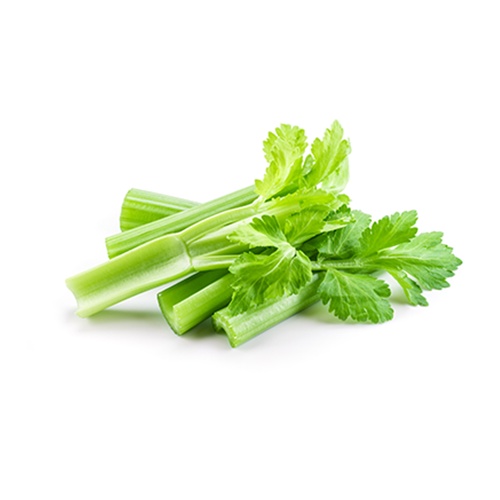
You may not have seen this one coming, but celery is a great low-calorie snack for losing weight.
Celery provides fiber and has plant compounds like phthalides and antioxidants. These can reduce blood pressure and protect your body against free radicals that cause cancer and other diseases.
18. Radishes
- 16 calories per 100 grams
- Recommended serving size: half a cup, sliced (60 grams)
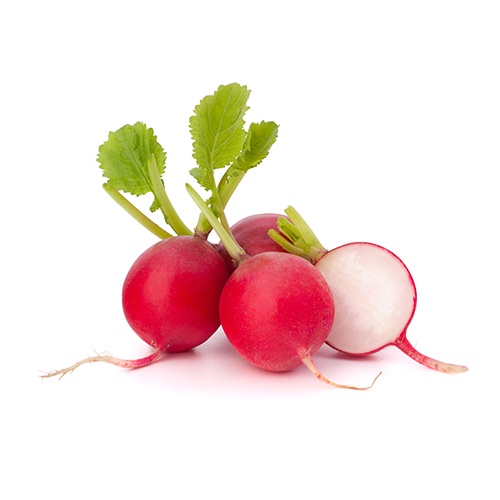
Radishes have antifungal properties and may protect your stomach from ulcers. A study has even linked radishes with a lower cancer risk.
Radishes may not be the first snack you reach for. But they definitely deserve a mention on this low-calorie foods list.
19. Zucchini
- 17 calories per 100 grams
- Recommended serving size: 1 cup, chopped (124 grams)
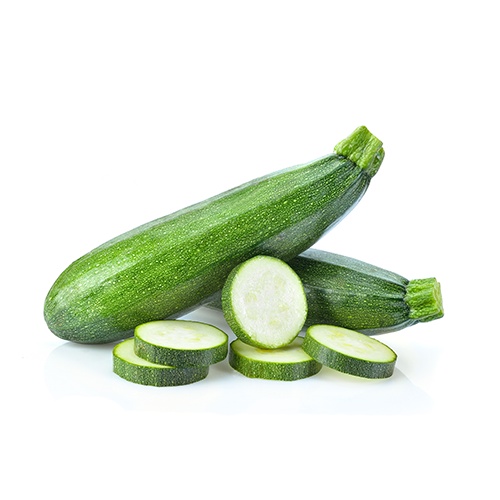
This summer squash isn’t just a low-calorie food but also has vitamin A, manganese, magnesium, vitamin C, and potassium.
Enjoy it as zoodles, a low-carb alternative to pasta that helps you reach a low calorie count. You can make these with a julienne peeler or spiralizer. Boil them for one minute, toss them into the microwave for 30 seconds, or just eat them raw.
20. Cauliflower
- 25 calories per 100 grams
- Recommended serving size: 1 cup, chopped (107 grams)

Not a fan of this white vegetable? You can still use it as cauliflower rice or cauliflower pizza crust for a low-carb, low-calorie alternative. To boot, antioxidants in cauliflower may reduce the risk of cancer and heart disease.
21. Broccoli
- 34 calories per 100 grams
- Recommended serving size: 1 cup, chopped (91 grams)

Broccoli is loaded with vitamins C and K, has anti-inflammatory compounds, and could reduce cholesterol levels.
Steam broccoli florets to preserve most of their nutrients. Eat them with other vegetables and foods in this list as a simple and healthy snack.
22. Green beans
- 31 calories per 100 grams
- Recommended serving size: 1 cup (100 grams)
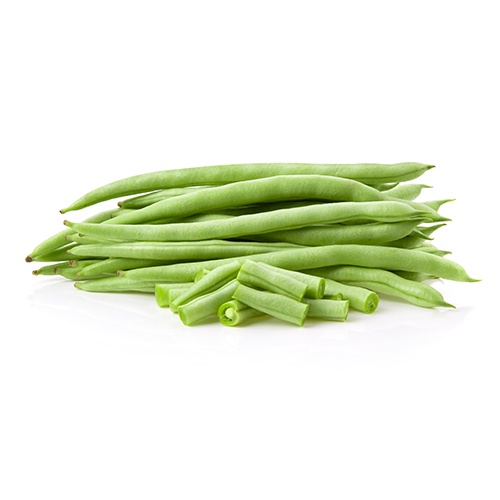
Green beans are a reliable source of fiber. They may also help regulate blood pressure through their folate and potassium content.
What’s more, eating green beans regularly may reduce inflammation, which is associated with many health problems. This is due to this veg’s antioxidant content.
Tip: You may also want to try sugar snap peas.
23. Brussels sprouts
- 43 calories per 100 grams
- Recommended serving size: 1 cup (88 grams)
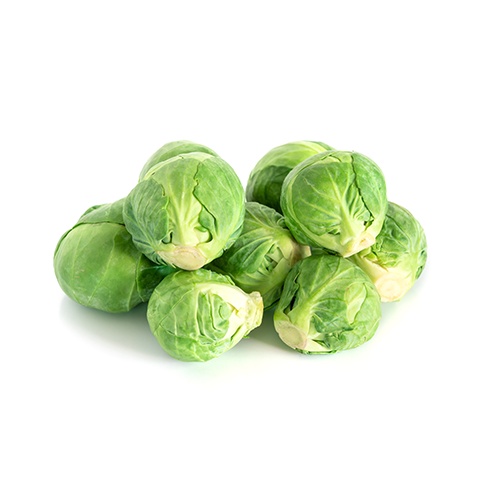
Brussels sprouts have vitamin C and fiber. They have a high water content and are one of the most versatile vegetables around. Stream them, add them to stir-fries, bake them, sauté them, boil them into a soup, the list goes on…
24. Asparagus
- 20 calories per 100 grams
- Recommended serving size: 1 cup (134 grams)

Want to follow a healthy, low-calorie diet? Don’t miss out on asparagus. Although it has only 20 calories per 100 grams, this veg is rich in antioxidants and other beneficial plant compounds. Eating it, you also get a boost of folate and vitamin K, two essential vitamins.
25. Bell peppers (any color)
- As low as 20 calories per 100 grams
- Recommended serving size: 1 cup, chopped (149 grams)
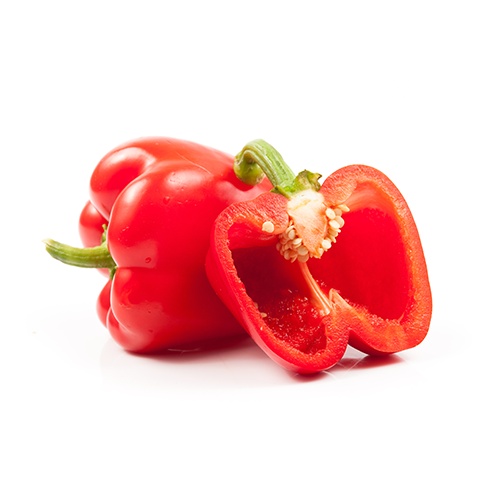
Whether red, green, or yellow, bell peppers are low in calories while providing healthy doses of vitamin C. Just 100 grams of green pepper provides 134% of the daily recommended dose of vitamin C. Eat it raw to enjoy all its nutrients.
Other snacks
26. Brown rice cakes (plain and unsalted)
- 387 calories per 100 grams (around 38.7 per rice cake)
- Recommended serving size: 1 rice cake (10 grams)
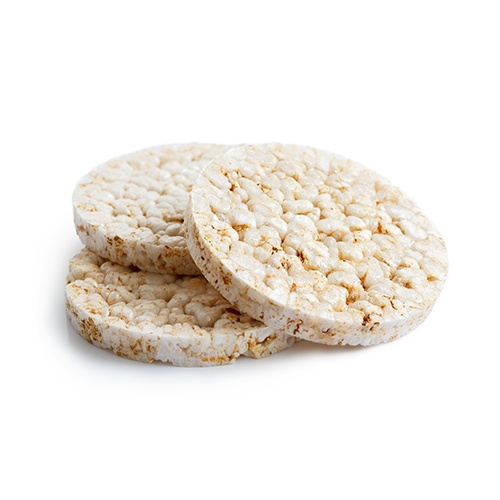
While a 100-gram serving of rice brown cakes provides plenty of calories, a rice cake is only around 10 grams. That makes 1–2 plain brown rice cakes a convenient snack that provides carbs, protein, and fiber without too many calories.
27. Popcorn (air-popped with no added butter)
- 387 calories per 100 grams
- Recommended serving size: 1 cup (8 grams)
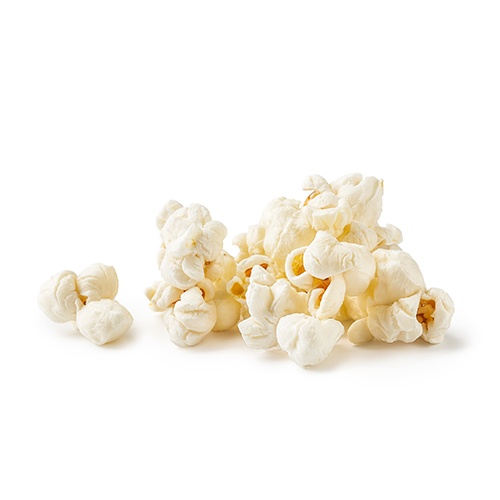
In small quantities, air-popped popcorn is another low-calorie snack you can enjoy now and then. Popcorn has protein and fiber as well as magnesium, iron, and vitamin B6. Just make sure to avoid varieties with added fat or sugar.
28. Unsweetened applesauce
- 42 calories per 100 grams
- Recommended serving size: half a cup (122 grams)
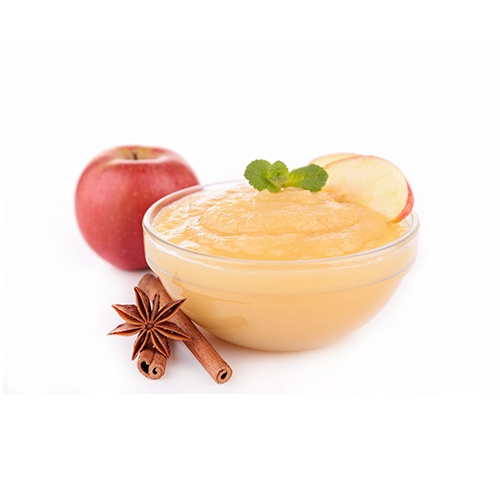
Simple, unsweetened applesauce made by cooking apples with water is another snack with few calories. It’s a source of fiber and, if you like apples, tastes quite deliciously. It’s also inexpensive and easy to make at home, which can be an alternative if your local supermarket doesn’t store the unsweetened kind.
29. Plain Greek yogurt (non-fat)
- 59 calories per 100 grams
- Recommended serving size: 1 container (170 grams)
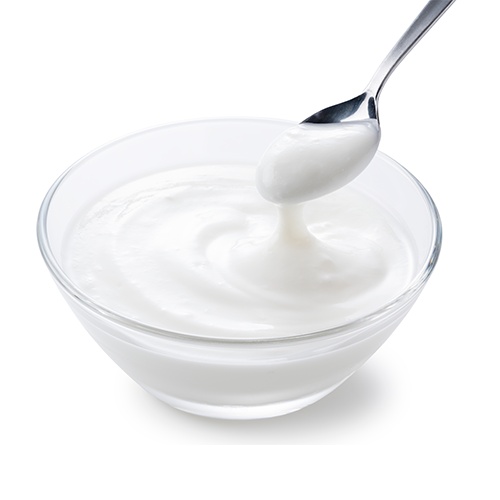
Non-fat plain Greek yogurt is an excellent source of protein. One 170-gram container provides 17 grams of protein.
If you’re a vegetarian who works out, plain Greek yogurt can help you meet your daily protein needs. You can also add berries and other low-calorie fruits.
Tip: Are you getting enough protein? Check our post on what is a fat protein efficient diet.
30. Seaweed snacks
- 43 calories per 100 grams
- Recommended serving size: 2 tablespoons (10 grams)
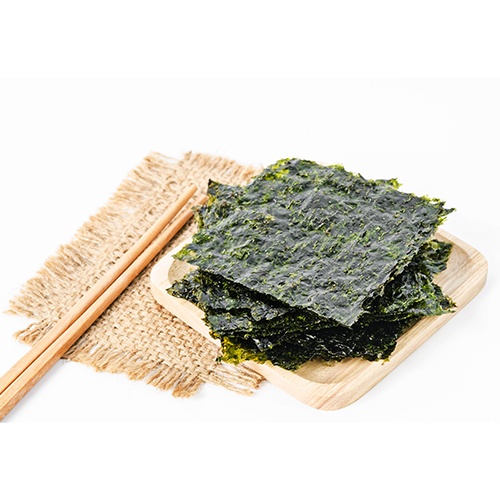
Seaweed snacks made from dried and baked kelp can add variety to your diet. Kelp contains iodine, which your thyroid needs to make hormones. It’s also a source of copper, riboflavin, thiamin, and iron, all of which are key nutrients.
Just watch out for seaweed snacks fried in oil or with added sugar. Those are loaded with calories.
FAQ
What snack food has no calories?
Water alone has no calories, which means there are no zero-calorie snacks. However, there are plenty of low-calorie snacks you can enjoy between workouts. Great options include berries like blueberries and strawberries and fruits like apples and apricots.
You can also try leafy greens, such as lettuce and kale, and many vegetables, including cucumbers, zucchini, broccoli, and bell peppers. Snacks like brown rice cakes and low-fat Greek yogurt are other low-calorie snack options.
Stick to the recommended serving size and avoid mixing them with sweeteners, fats, carbohydrates, or other high-calorie foods.
For example, you can add blueberries to low-fat Greek yogurt. But if you also add honey and walnuts, the calories add up.
What is the best zero-calorie food?
Since zero-calorie snacks or foods don’t really exist, the best low-calorie foods for runners trying to lose weight are whole, nutrient-dense foods. They are free of additives and have undergone little to no processing.
Fresh fruit, from apples to watermelon, is an excellent choice. So are vegetables with a high water content that provide hydration, such as cucumbers, cauliflower, broccoli, Brussels sprouts, and asparagus.
Leafy greens like spinach and arugula are also inspired choices because they are nutrient-dense yet low in calories. Finally, you can add low-fat, protein-rich Greek yogurt, unsweetened applesauce, and a few plain brown rice cakes to your menu.
Which snack has the fewest calories?
There are many low-calorie snacks available, but some of the best options include:
- Air-popped popcorn: One cup of air-popped popcorn has only 31 calories.
- Celery sticks with peanut butter: One stalk of celery with 1 tablespoon of peanut butter has only 84 calories.
- Baby carrots: One cup of baby carrots has only 42 calories.
- Rice cakes: One rice cake has only 35 calories.
- Tofu: One block of tofu (140 grams) has only 100 calories.
What food is 25 calories?
There are many foods that are 25 calories or less, including:
- 4 strawberries: 25 calories
- 6 grapes: 24 calories
- 1 cup of raspberries: 22 calories
- 1 cup of blueberries: 84 calories
- 1 cup of unsweetened almond milk: 30 calories
Takeaways
Calorie-free foods are a myth. But low-calorie snacks are natural and healthy foods that provide nutrients and nourishment. They may be low in calories, but they contain essential nutrients, including powerful compounds and antioxidants that support overall health.
Whether you run occasionally or a lot, you can count on berries, fruits, leafy greens, vegetables, and some other snacks. From apples and blueberries to kale, cucumbers, and brown rice cakes, the world of low-calorie snacks is rich and flavorful, so don’t worry about finding “zero-calorie snacks”.
In addition to supporting your weight loss goals, eating low-calorie snacks can help you become healthier. These foods provide fiber, vitamins, minerals, and antioxidants.
New to running? Beginning your running journey becomes easier with Joggo. Joggo provides personalized meal plans with a selection of 10+ most popular diets as well as a personalized running plan according to your goal. Why wait? Take a short quiz and start running with Joggo today!
References:
- Niculescu, M., Leonhardt, J.M., Payne, C.R. and Barney, C., 2018. Dietary Restraint and Consumer Consumption Intentions for Low‐Calorie Snacks. Journal of Consumer Affairs, 52(2), pp.466-479.
- Dalal, A.A., 2020. Investigation of Actual Calories in Healthy Snacks.
- Hess, J.M. and Slavin, J.L., 2017. Healthy snacks: using nutrient profiling to evaluate the nutrient‐density of common snacks in the United States. Journal of food science, 82(9), pp.2213-2220.
- Okpiaifo, G.E., Dormoy-Smith, B., Kassas, B. and Gao, Z., 2023. Perception and demand for healthy snacks/beverages among US consumers vary by product, health benefit, and color. Plos one, 18(6), p.e0287232.
- Yang, J., Lee, R., Schulz, Z., Hsu, A., Pai, J., Yang, S., Henning, S.M., Huang, J., Jacobs, J.P., Heber, D. and Li, Z., 2023. Mixed Nuts as Healthy Snacks: Effect on Tryptophan Metabolism and Cardiovascular Risk Factors. Nutrients, 15(3), p.569.





